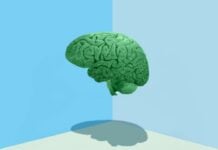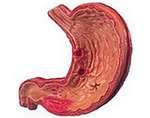New research highlights a critical link between body composition – specifically, the ratio of muscle mass to visceral fat – and the rate of cognitive decline. A study presented at the Radiological Society of North America revealed that individuals with higher muscle mass relative to deep abdominal fat exhibit brain structures that appear measurably younger on imaging scans.
The Research Findings
Researchers examined over 1,100 healthy adults (average age 55) using advanced MRI scans and AI algorithms to quantify total muscle volume, visceral fat (fat around internal organs), and subcutaneous fat (fat under the skin). The results were striking: participants with a higher muscle-to-visceral-fat ratio consistently showed younger-appearing brains. Conversely, those with more visceral fat relative to muscle mass had brains that appeared biologically older than their chronological age. Notably, subcutaneous fat showed no correlation with brain aging.
Why This Matters
The connection between body composition and brain health is rooted in biology. Visceral fat isn’t inert; it’s an active endocrine organ that releases inflammatory compounds into the bloodstream. These substances trigger systemic inflammation, impacting organs including the brain and accelerating cognitive decline. Muscle tissue, on the other hand, releases myokines – compounds with anti-inflammatory and neuroprotective effects.
The key isn’t simply reducing fat, but optimizing body composition to favor muscle growth over visceral fat accumulation.
Implications for Health & Weight Loss
These findings have several important implications:
- Strength Training: Building muscle is now understood as a direct means of protecting cognitive function.
- GLP-1 Drugs: Popular weight loss medications may reduce overall fat, but can also cause muscle loss. This could negate some of the brain health benefits.
- Therapeutic Approaches: Future treatments might target visceral fat specifically while preserving or even building muscle.
The Bottom Line
The ratio of muscle to visceral fat is a powerful predictor of cognitive aging. Lifestyle choices – strength training, targeted nutrition, and strategic use of weight loss interventions – can directly impact brain health. This research reinforces the idea that physical fitness isn’t just about appearance; it’s an investment in long-term cognitive resilience.

































